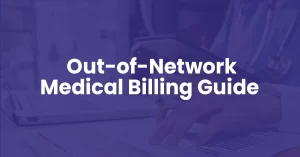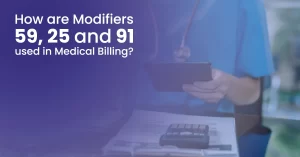Medical care is clearly an important part of staying healthy, but expensive medical bills can put a strain on your bank account. Medical debt can have a bad impact on your credit score because the debt has already been sent to collections by the time it appears on your credit report. Even if you are actively making payments on the debt, having an account in collections can have a negative impact on your credit score.
Medical care is essential, but the bills that come with it can be costly. So the question arises, do medical bills affect your credit? Medical bills may have an impact on your credit. If you’ve ever had an injury, illness, or surgery, you’re probably aware of the possibility of high medical bills. Read below: how do medical bills affect your credit?
Do Medical Bills Affect Your Credit?
As long as you pay your medical bills, they will not affect your credit. Medical debt, on the other hand, is treated differently than other types of consumer debt. Most practitioners do not report to credit bureaus. However, your debt report is sent to a collection agency before it appears on your credit report. It is up to your doctor to determine when this occurs.
Even if your bill is sent to collections, the account will not appear on your credit report right away.
Because medical bills are a different type of debt, the credit bureaus provide this time limit. Even if you have health insurance, it may take months for your insurance company to approve and pay the health care provider. A simple coding or billing error can significantly slow the payment process. The 180-day grace period allows you to correct any errors and enables the insurance company’s payment to pass through the system. It also gives you time to work out a payment plan if one is required.
This doesn’t mean you should disregard a medical bill. Unpaid medical bills take time to appear on your credit report, but the damage they cause can be long-lasting. Unpaid bills can be reported to the credit bureaus for up to seven years after they become past due.
It is critical to act quickly to avoid having a medical bill negatively impact your credit score. When you receive a medical bill, double-check its accuracy. Contact your insurance company and health care provider to resolve any issues; continue to follow up until the bill is paid.
If the bill isn’t covered by your insurance and you’re worried about paying it, talk to your doctor to see if you can come up with another solution. If your medical bills are becoming too much to endure, you may want to ask for assistance from a medical billing advocate or financial assistance from a charity or government program.
What Options Are Available if You Can’t Make Your Minimum Payment?
Don’t worry if you know you won’t be able to pay your medical bills on time. One of the following solutions may be suitable for your situation.
Look into negotiating your medical bills
Health care providers are frequently willing to work with you because they would rather receive a portion of what they are owed than nothing at all. Some providers, for example, offer significant discounts if you are ready to reimburse a small amount in full or if you pay a large down payment and then pay the remainder over time.
Take action to work out a repayment plan
Your healthcare provider may be ready to divide the bill into monthly instalments, making it more manageable for your budget. Just keep in mind that any interest or fees charged by the provider will be added to the cost of the original bill.
Engage the services of a medical billing advisor
Medical billing proponents work with health care providers and insurance companies to help individuals resolve medical bills. The service is not free, but it may be worthwhile. A medical billing supporter can save you thousands of dollars as well as hours on the phone with insurers and provider offices.
Decide whether you are eligible for financial assistance
Depending on your income, Medicaid, local or state programs, religious groups or nonprofit organizations, and charities may help you pay your medical bills.
Make use of a personal loan or a credit card
As you’ll be charged interest on the amount you borrow or charge, these should be your last resort. Avoid getting a loan secured by your home or other property; if you default, you could lose it. If you intend to use credit, a card with a long 0% APR introductory offer on purchases can give you more time to pay off your medical debt without incurring interest—but make sure to return the debt before the amount gets higher.
Maintain a Healthy Credit Score
A medical collection account will have far less impact on your credit score over time, until it eventually disappears from your credit report. Until if you have a collection account on your credit report, you can still improve your credit score. Make payments on-time on all of your debts, keep your credit card balances low, and avoid applying for new credit until you absolutely need it. Keep an eye on your credit by checking your credit report and score on a regular basis. Keep an eye on your credit score risk factors so you can make changes to help you improve your scores.
Regularly reviewing your credit report will assist you in detecting any healthcare debt that has gone to any fraudulent use of your credit. Once the medical debt has been paid off, ensure that the account is marked as paid on your credit report. When your credit score is on the right track, keep an eye on it by enrolling in free credit monitoring.
How to Avoid Medical Bills Showing Up on Your Credit Reports
Be practical and proactive. You can avoid the collections process entirely by reviewing each medical bill and working out a payment plan with the health care provider. Consider taking the steps suggested by the Consumer Financial Protection Bureau.
Examine each Medical Bill
Contact the provider if you don’t understand some of the charges or believe there is an error. Request a recorded bill to see how much you are charged for each service and ask them to explain each section of the statement.
Check Health Insurance
Inquire with your healthcare provider if they’ve made a payment request to your insurance company. It’s possible that they sent you a bill before running it through insurance by mistake.
Make a Payment
It is the best and convenient to pay the bill by the due date once you’ve understood the charges and confirmed you’re responsible for the balance. Keep track of your payment and double-check that it’s been processed.
Payment Plan with the Service Provider
If you contact your medical provider before the bill is turned over to a collection agency, you may be willing to set up a payment plan or lower the amount due. Make sure a payment plan is feasible for your budget before agreeing to it. Obtain written confirmation of the agreement, and then pay the installments on time.
How to Get Medical Bills Removed from Credit Reports
Medical bills can be removed from your credit reports. You have the option of disputing an incorrect item or waiting for a collection account to be removed from your reports. There may be errors in some medical collections accounts. If that’s the case, speak with your Physicians or a medical billing company first. You can also file a discussion with each medical company with the incorrect information listed on their records.
The goal of our RCM cycle is to increase revenue. You can rely on our RCM flow capabilities already in place; it can be tough on your operational excellence to invest resources in collecting payments. We realize how your business works and how delayed refunds can affect your customer relationships, so BellMedEx strives for a quick resolution of issues and avoids recurrence. To improve customer satisfaction, we developed and implemented proven strategies and practices. Our services are built based on continuous improvement. We investigate patterns, identify gaps, and devise a strategy to close them. We promote increased productivity and business solutions. We provide reports and analytics to assist you in evaluating your practice, learn how do medical bills affect your credit?





